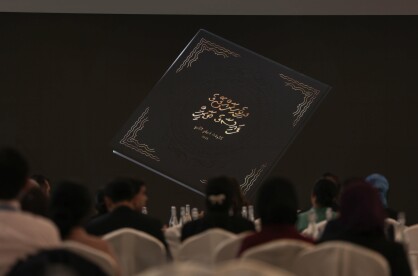On 3rd December 2024, Moody’s Ratings (Moody’s) confirmed and maintained the Maldives’ Long-Term Local and Foreign Currency Issuer Rating of Caa2.
This rating action reflects Moody’s assessment regarding the country’s continued access to bilateral financing, the introduction of the new foreign currency regulation by the Maldives Monetary Authority (MMA), and the revenue reforms being implemented by the Government during this period.
The new foreign currency regulation introduced by the MMA aims to increase the availability and circulation of foreign currency within the domestic banking system. This move became necessary due to the significant strain on the Maldives' foreign exchange reserves, caused by a persistent trade deficit, heavy reliance on imports, and rising external debt obligations. Additionally, the tourism sector, a primary source of foreign currency inflows, has faced volatility in recent years, further exacerbating liquidity challenges.
By implementing this regulation, the MMA sought to address these issues, ensuring a steady flow of foreign currency to meet critical economic needs and maintain stability in the financial system. By requiring businesses in the tourism industry to deposit a portion of their foreign currency earnings into local banks, the regulation enhances liquidity and ensures a more stable supply of foreign currency for essential imports and debt repayments. This policy has had a positive impact on the economy, reducing pressure on the country’s foreign exchange reserves while improving confidence among international investors and creditors. Additionally, the regulation supports the timely settlement of international obligations, further bolstering the Maldives' financial stability.
This assessment by Moody’s was supported by the positive move of the Government and the MMA, to successfully secure a foreign currency swap facility from the Reserve Bank of India, which aided to alleviate pressures on external reserves. Further, the recent changes to the foreign currency regulation are expected to increase foreign currency circulation within the domestic banking system, and boost net international reserves. Meanwhile, adjustments to the rates of taxes and fees denominated in foreign currency are also projected to improve foreign currency liquidity.
Beyond revenue mobilization, the expenditure reduction measures outlined in the approved budget for 2025, including the planned reforms to subsidies, and the operations of State-Owned Enterprises, are expected to address the concerns on the twin deficits. The Government is also working in collaboration with the private sector on innovative financing options to fund public investment priorities such as renewable energy, and housing. Together with the planned implementation of a fuel hedging policy, and large-scale investments in renewable energy, the Government aims to alleviate pressures on the external sector.
The Government acknowledges the risks highlighted by Moody’s and remains committed to the implementation of the planned fiscal consolidation measures to mitigate the risks on the fiscal and external sectors. Successful implementation of the ‘Maldives Economic Reform Agenda’ of the Government, will enhance economic growth, and restore fiscal and debt sustainability.







